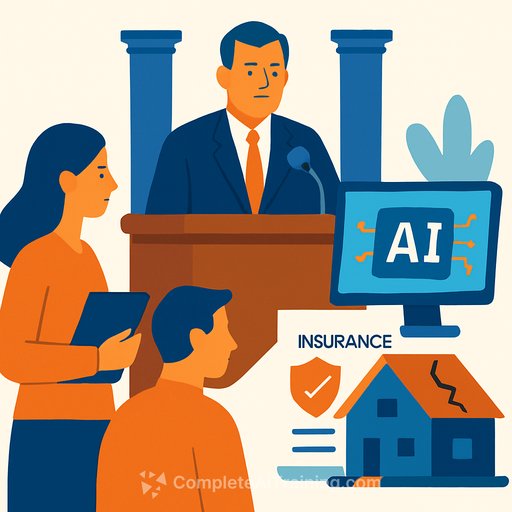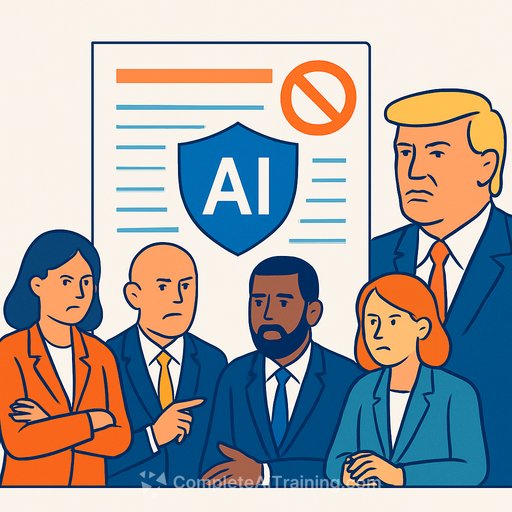Florida lawmakers probe AI in claims: tool, not loophole, industry says
Florida's House Insurance & Banking Subcommittee pressed industry and tech leaders on how artificial intelligence is used in claims handling and underwriting. The message from carriers: AI is a tool governed by existing insurance laws, not a shortcut around them.
"If a practice is prohibited for a human to do on behalf of an insurance company, it is prohibited for AI to do," said Paul Martin of the National Association of Mutual Insurance Companies. "Artificial intelligence is not an end run around a state's statutes or its regulations."
Core question: Can AI deny a claim without a human?
Rep. Hillary Cassel asked whether Florida law bars insurers from using AI as the sole basis for denying a claim, noting parallels to practices seen in health insurance. Bills in the 2025 session would have prohibited AI-only denials, but they did not pass. Lawmakers signaled the topic will likely return in the 2026 session.
"It's just not like we're going to turn everything onto Google and ask should we pay this claim," said Thomas Koval of FCCI Insurance Group, emphasizing human oversight and responsible deployment.
Rates, segmentation, and market impact
Rep. Marie Woodson pointed to high premiums and asked how AI could influence rates. Koval said AI-driven efficiencies in operations and claims can lower expense loads, which flow into rate filings.
Rep. Nathan Boyles raised concerns that AI could enable micro-level risk assessment that shuts out certain property owners. Martin pushed back: "AI is not there to deny claims. AI is not there to write fewer policies."
Where AI meets existing rules
The industry position: current unfair claims, unfair trade, privacy, and anti-discrimination statutes already apply. Other states are testing AI-specific bills, but TechNet's Jarrett Catlin urged new authorities only when there's a clear, AI-specific risk.
Insurers can align programs with emerging frameworks to show control and due care. See the NAIC's Model Bulletin on AI use by insurers and the NIST AI Risk Management Framework for risk, testing, and governance practices.
What carriers should do now
- Keep a human in the loop for adverse claim decisions and coverage rescissions; document the final authority.
- Stand up AI governance: inventory models, assign owners, define approval gates, and set decommission criteria.
- Run pre-deployment and ongoing testing for accuracy, drift, bias, and disparate impact; log results and remediation.
- Maintain explainability: capture the factors influencing outcomes and provide consumers a clear appeal path.
- Tighten vendor oversight: require model documentation, training data sources, monitoring SLAs, and audit rights.
- Control data inputs: quality checks, PHI/PII safeguards, minimal-use principles, and strong access controls.
- Create audit trails for every model decision that affects claims, pricing, underwriting, or SIU referrals.
- Train adjusters and CSRs on AI-supported workflows, limits, and escalation protocols.
- Prepare regulator-ready materials: use cases, controls, testing summaries, consumer notices, and impact analyses.
- Pilot first. Start with triage, document classification, fraud flags, and straight-through processing on low-risk tasks before scaling.
Legislative outlook
House Chair Brad Yeager called the process "ongoing," and members flagged renewed debate in the 2026 session-especially on AI-only denials and guardrails for claims and underwriting. Lawmakers are also reviewing AI in education via a Senate panel next week.
Skill up your insurance teams
If you need structured learning on AI governance, claims automation, and analytics, explore curated training by job role.
Complete AI Training: Courses by job
Your membership also unlocks:






